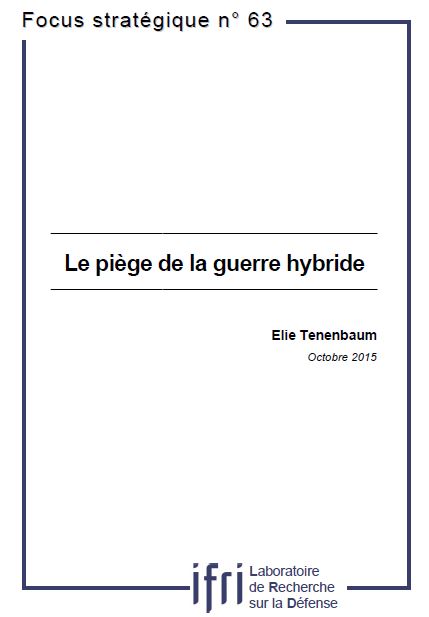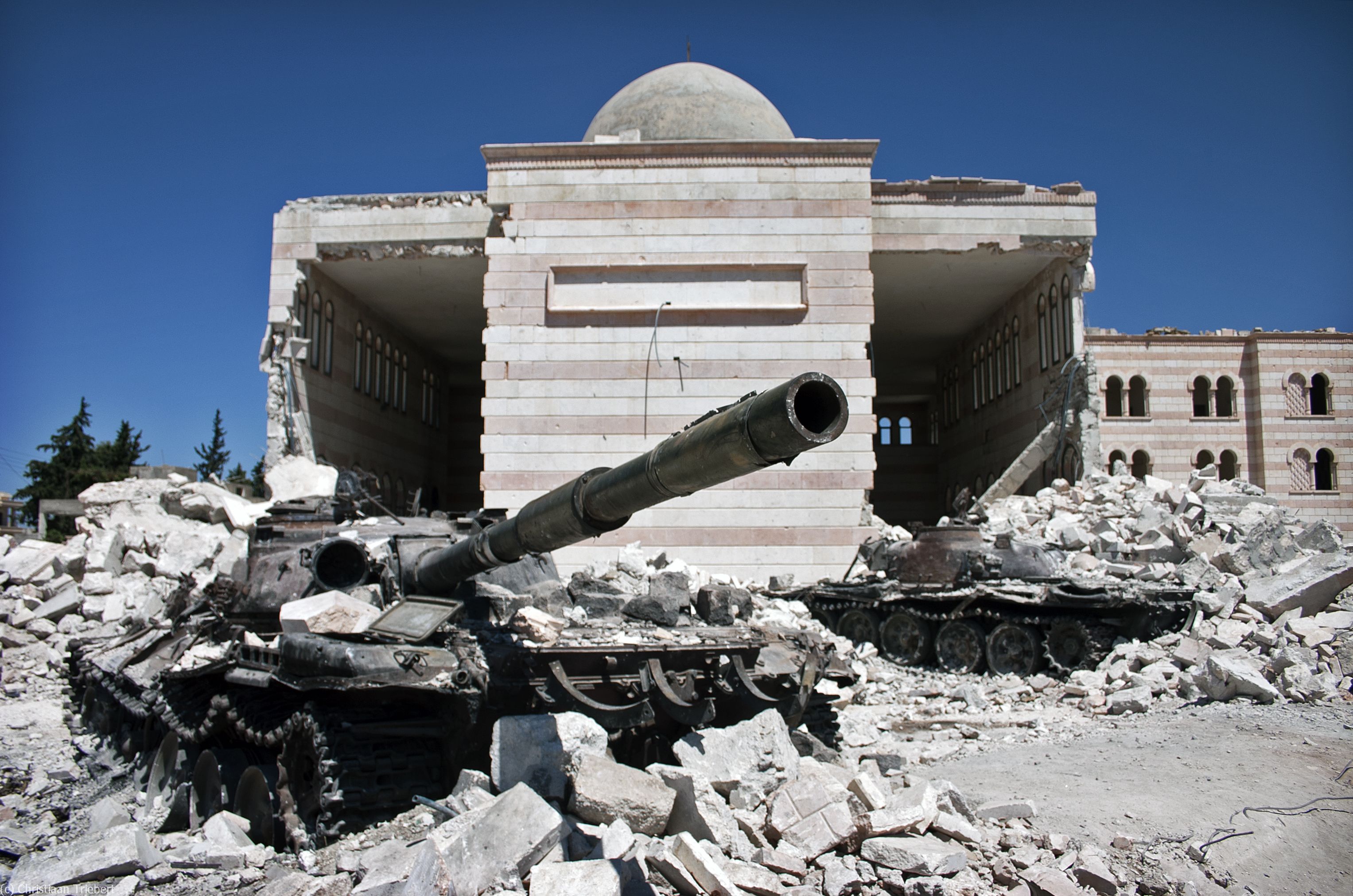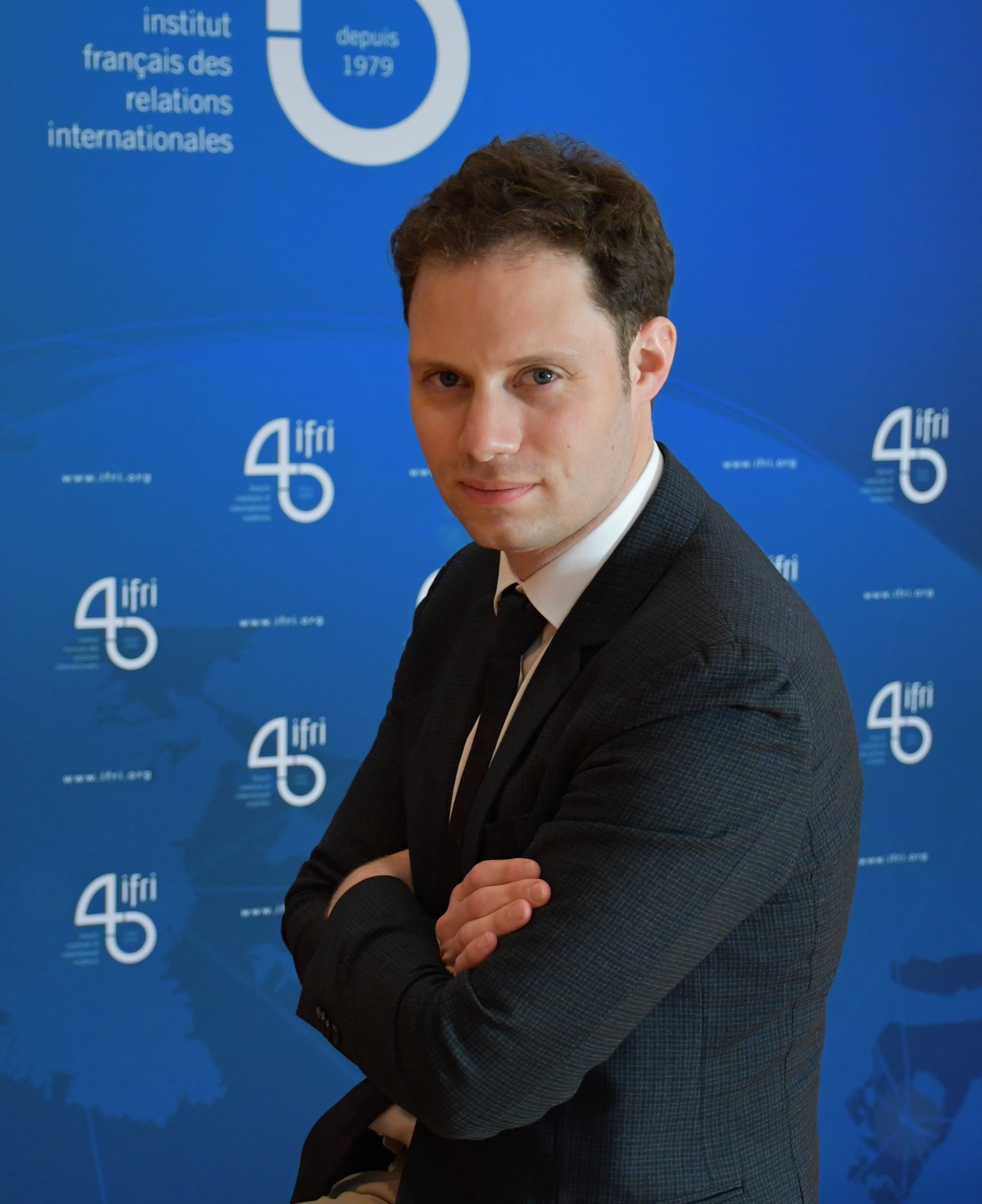Le piège de la guerre hybride

Since its inception in the mid-2000s, hybrid warfare has become a fashionable concept among Western strategic community. However, it lacks a clear definition and, if loosely used, could lead to possibly dangerous misunderstandings.

At the political and strategic level, the hybrid notion reflects the porosity between irregular and regular warfare. At the operational level, it describes sophisticated forms of maneuver combining dispersion and concentration. At the tactical and capability level, it portrays the lethal mix of modern conventional equipment traditionally associated with regular warfare, and the use of non-linear tactics, typical of irregular warfare. This innovative mode of fighting is now showing its successes on a wide variety of theatres and with belligerents as different as Russia in Ukraine, the Islamic State in Iraq and Syria, or the drug cartels in Mexico. One should not, however, be blinded by the hybrid branding for only differentiated strategies will allow to counter such a wide variety of threats.
This content is available in French: Le piège de la guerre hybride
Related centers and programs
Discover our other research centers and programsFind out more
Discover all our analyses"Iron Swords" A Military Analysis of Israel's War in Gaza
On October 7, 2023, Hamas' attack, dubbed “Al-Aqsa Flood,” caused a major shock and led Israel to launch the longest war in its history. Operation “Iron Swords” was notable for its unprecedented intensity, both in terms of the massive ground forces deployed and the firepower used.
Saudi Arabia’s Nuclear Temptations. Lessons Learned from Regional Instability
Saudi Arabia’s integration in the international arena and regional stability, notably through reducing its dependence on fossil energies, are crucial elements for the success of the Kingdom’s Vision 2030, the Crown Prince’s top priority. However, Mohammed bin Salman’s declarations in 2018 and 2021, indicating that “if Iran develops a nuclear bomb, we will follow suit as soon as possible”, combined with the recent strikes on key Iranian nuclear facilities, do not bode well for the future of the Kingdom, the region and the non-proliferation regime at large.
The Future of Air Superiority. Command of the Air in High Intensity Warfare
Air superiority, understood as control of the air, is a cornerstone of the Western art of warfare. It is a decisive condition, albeit not sufficient by itself, to achieve military victory, as it enables the concentration of air power toward the achievement of wider strategic objectives and protects other components from unbearable attrition levels. It is best achieved through the offensive use of air power in a joint effort to neutralize the enemy’s air power.
Europe Uncovered?
As Russia continues to threaten Europe, the Trump administration is making no secret of its desire to withdraw—at least partially—from the defense of the Old
Continent in order to focus on strategic competition with China. It is thus putting pressure on its European allies to increase their investment in the military sector. The NATO Summit in The Hague in June 2025 resulted in ambitious commitments by member states to increase their defense spending.












